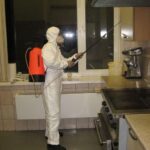There is no sure way to prevent prostate cancer. However, there are some things you can do to lower your risk, such as:
- Get regular checkups: Your doctor can check your prostate gland for any abnormalities.
- Eat a healthy diet: A healthy diet includes plenty of fruits, vegetables, and whole grains. It is also important to limit your intake of processed foods, sugary drinks, and unhealthy fats.
- Get regular exercise: Regular exercise can help lower your risk of prostate cancer.
- Avoid smoking: Smoking increases the risk of prostate cancer.
- Limit alcohol intake: Drinking too much alcohol increases the risk of prostate cancer.
What is Prostate Cancer?
Prostate cancer is a type of cancer that starts in the prostate gland. The prostate gland is a small gland in men that produces some of the fluid that makes up semen. Prostate cancer is the most common cancer in men after skin cancer.
Symptoms and Signs of Prostate Cancer
The early stages of prostate cancer often do not cause any symptoms. However, as the cancer grows, it can cause some of the following symptoms:
- Changes in urination: These changes may include difficulty starting or stopping urination, a weak or interrupted stream of urine, or a need to urinate more often, especially at night.
- Pain or discomfort in the pelvic area: This pain may be constant or intermittent.
- Erectile dysfunction: This is the inability to get or keep an erection.
- Blood in the semen: This is a rare symptom.
Treatments for Prostate Cancer
The treatment for prostate cancer depends on the stage of the cancer, the patient’s age and overall health, and the patient’s preferences. Treatment options for prostate cancer may include:
- Active surveillance: This is a watchful waiting approach. Your doctor will monitor your cancer closely for signs of growth or spread.
- Surgery: Surgery is the most common treatment for prostate cancer. The type of surgery performed depends on the stage of the cancer.
- Radiation therapy: Radiation therapy is used to kill cancer cells. Radiation therapy can be used before or after surgery, or it can be used as the only treatment for early-stage prostate cancer.
- Hormone therapy: Hormone therapy is used to block the effects of hormones that can stimulate the growth of prostate cancer cells. Hormone therapy is often used in combination with other treatments, such as surgery, radiation therapy, or chemotherapy.
- Chemotherapy: Chemotherapy is a type of drug treatment that is used to kill cancer cells. Chemotherapy can be used before or after surgery, or it can be used as the only treatment for advanced-stage prostate cancer.









